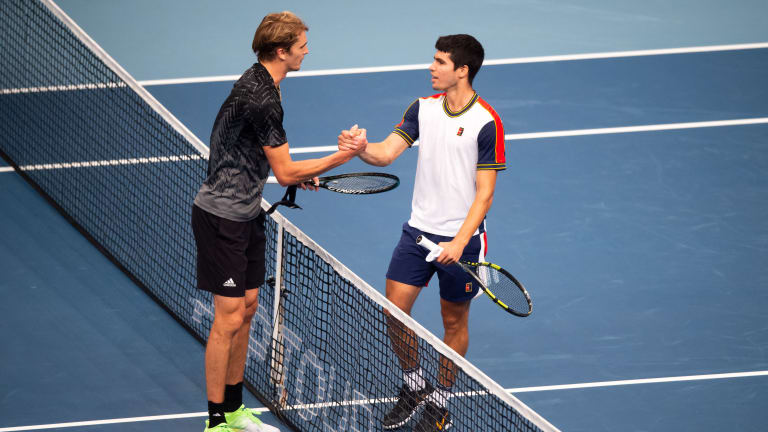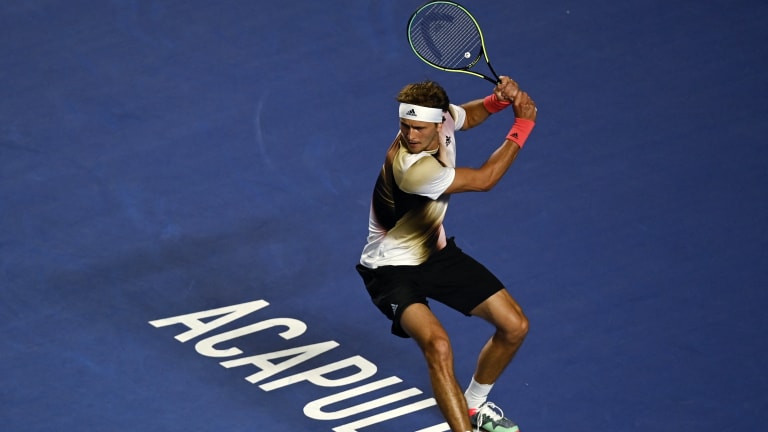Acapulco, Mexico
The Wayward Prodigy: It wasn't long ago that Alexander Zverev was being lauded like Carlos Alcaraz is now
By Feb 24, 2022Acapulco, Mexico
Machac-apulco! Tomas Machac captures first ATP title of career in Acapulco
By Mar 02, 2025Acapulco, Mexico
American teenager Learner Tien beats Alexander Zverev, advances to the Acapulco quarterfinals
By Feb 27, 2025Acapulco, Mexico
Stomach issues hit Casper Ruud, Tommy Paul, Holger Rune on day where Acapulco's top five seeds all bow out
By Feb 27, 2025Acapulco, Mexico
American teenager Learner Tien takes out world No. 2 Alexander Zverev in Acapulco stunner
By Feb 27, 2025Acapulco, Mexico
Alex de Minaur defeats Casper Ruud to win Acapulco title for second year in a row
By Mar 03, 2024Acapulco, Mexico
Defending champion Alex de Minaur returns to Acapulco final, where he will meet Casper Ruud
By Mar 02, 2024Acapulco, Mexico
Defending champion Alex de Minaur to face Stefanos Tsitsipas in Acapulco quarterfinals
By Feb 29, 2024Acapulco, Mexico
Daniel Altmaier defeats top seed Alexander Zverev in first round of Acapulco
By Feb 28, 2024Acapulco, Mexico
Ben Shelton narrowly escapes Dan Evans in Acapulco after Tommy Paul falls to Jack Draper
By Feb 27, 2024The Wayward Prodigy: It wasn't long ago that Alexander Zverev was being lauded like Carlos Alcaraz is now
The 18-year-old Spaniard has no pressing need to study the 24-year-old German's misadventures, but cautionary tales are always valuable.
Published Feb 24, 2022
Advertising
Advertising

Zverev and Alcaraz have both taken the ATP by storm at young ages.
© AFP via Getty Images
Advertising
Advertising

After his actions following a doubles match, Zverev was removed from the singles tournament in Acapulco.
© AFP via Getty Images